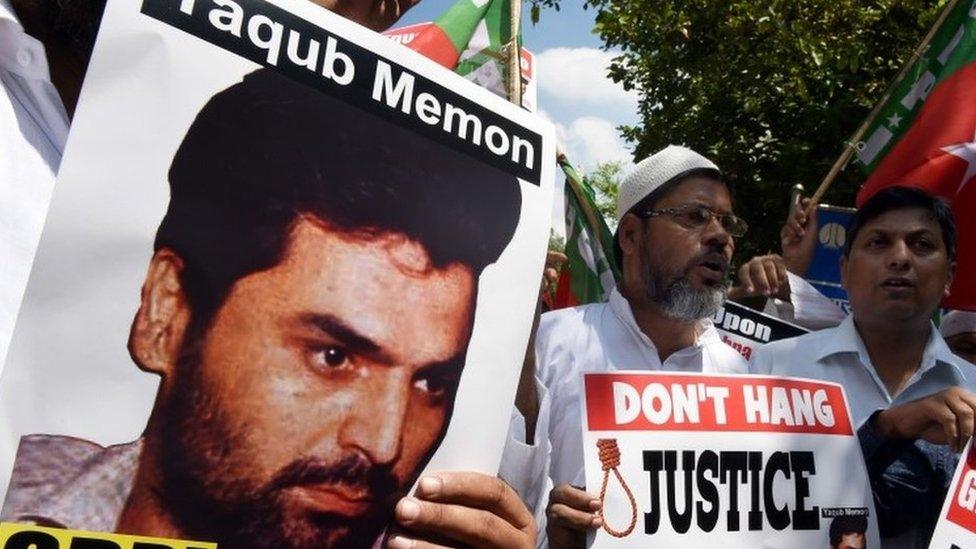Yakub Memon: Mumbai bomb plotter's execution sparks death penalty debate
- Published
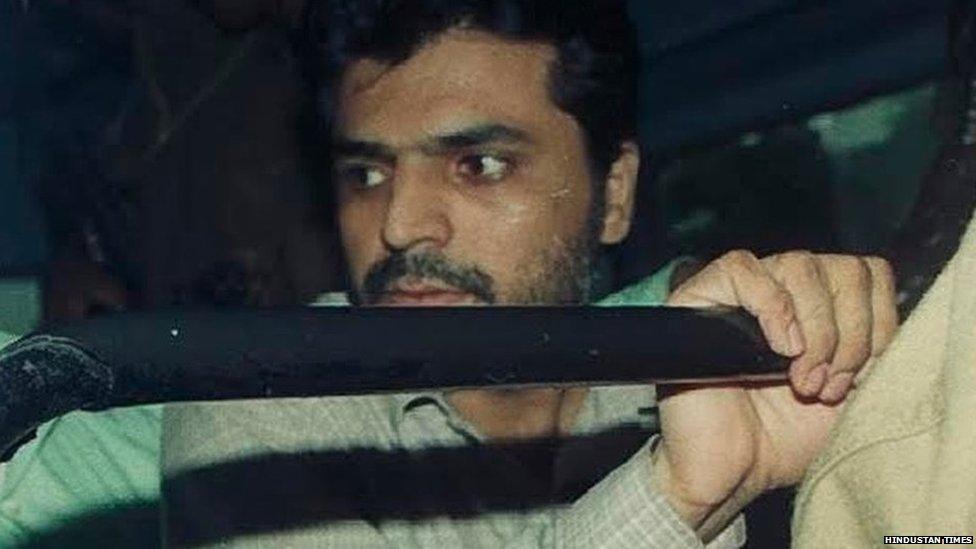
Yakub Memon was hanged on Thursday morning
The execution of Yakub Memon, the man convicted of financing the deadly 1993 Mumbai bombings, has divided opinions about India's capital punishment laws.
He was hanged on Thursday at a prison in Nagpur in the western state of Maharashtra, hours after the Supreme Court dismissed a final plea to stay the sentence.
Memon, a chartered accountant, was sentenced to death in 2007 by a special court in Mumbai after being convicted of providing financial and logistical support for the bombings.
A section of the media believe that the death penalty "demeans that most cherished idea on which our republic rests, the idea of justice".
The Indian Express, external, in an editorial, argues that "the execution of Memon must compel us to question our most fundamental beliefs".
"The wounds inflicted on 12 March 1993, can be healed only by justice - but what the hangman offers is only a crude approximation of that cherished ideal, the bedrock of our life as a republic and as a people," it writes.
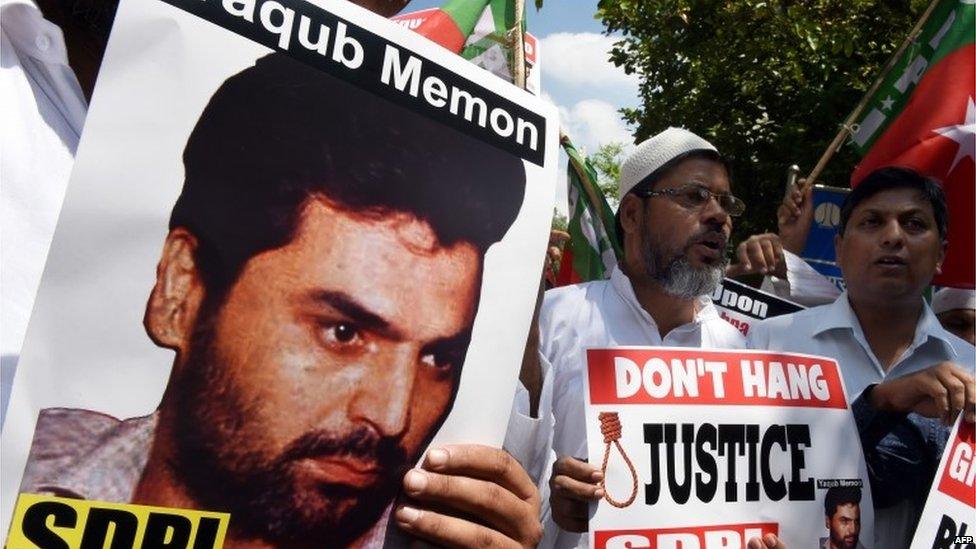
Protests have been staged against the execution in Delhi
Echoing similar sentiments, The Hindu, external sees the execution as "inhuman and unconscionable".
"Carrying out the sentence will only have the appearance of a justice that is retributive and vengeful, not substantial or morally different from the very offence that gave rise to the proceedings," it writes.
But The Pioneer , externalhas taken a contrarian view in its editorial, arguing that "Yakub Memon had exhausted all legal options".
It also criticises some eminent personalities who had sought a presidential pardon for him.
Some of India's prominent politicians, social activists, journalists and lawyers had urged President Pranab Mukherjee to commute Memon's sentence.
"It is disgraceful that certain people talk of unsubstantiated 'mitigating circumstances' and hold Yakub Memon 'innocent' or a 'victim' of a so-called unethical U-turn by the state," the paper says.
It rejects the claims made by some activists that "Yakub Memon had been 'betrayed' after he surrendered to the Indian law enforcement agencies and revealed valuable information".
Abolish 'death penalty'
Some papers have taken the debate beyond Memon's execution, saying India needs to abolish the death penalty.
The Hindu argues that no person should be executed regardless of "the heinousness of the offence, the circumstances or the number of fatalities involved".
"The debate on the need and desirability of retaining the death penalty has been overshadowed by much intellectual exertion on the nature of the crime involved, its gravity, its heinousness and the fatalities it caused. The time has come to end this debate once and for all by ascending to a moral position that there shall be no death penalty on the statute book," it argues.
The Indian Express says India needs "to honour the liberal heritage on which great nations are built, and take a step towards joining the right side of this divide".
Some Twitter users are also speaking in favour of abolishing the death penalty in India.
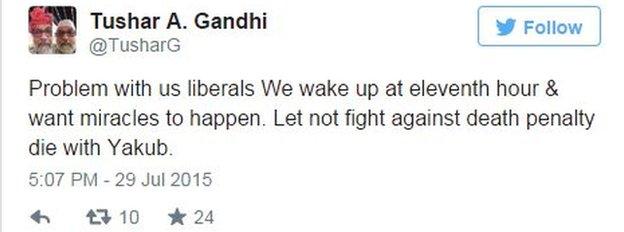
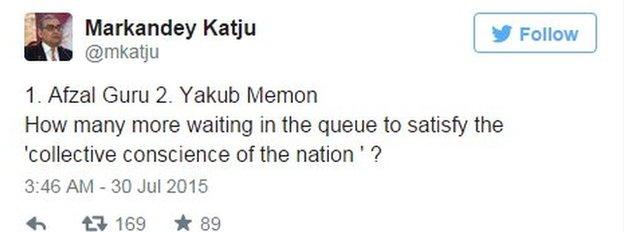
However, others believe that terror convicts "should not be shown any mercy".
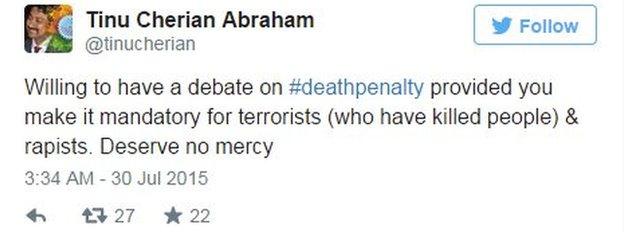
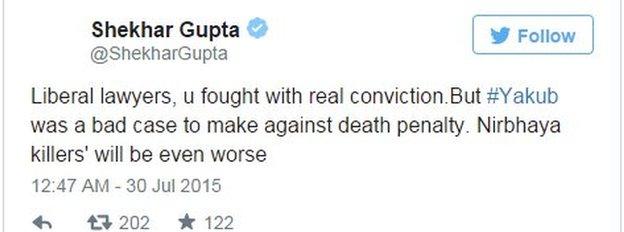
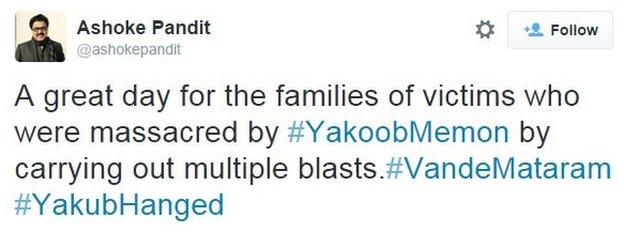
BBC Monitoring reports and analyses news from TV, radio, web and print media around the world. You can follow BBC Monitoring on Twitter, external and Facebook, external.
- Published29 July 2015
